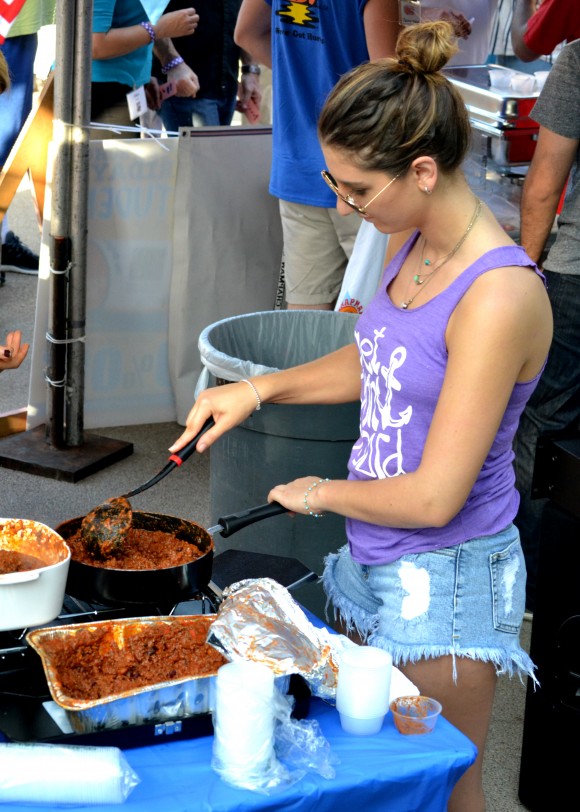Beans: The Magical Fruit As the cooler weather approaches, crock pots will be warming up delicious chili... but let's learn more about the beans in that chili.
September 29, 2015
With the Chili Cook Off and Homecoming just days away, it seemed appropriate to have Food Science student A.J. Rafter take a crack at analyzing one of the crucial components of any great chili: Beans. Make sure to look at the schedule events for Homecoming weekend, and make sure to RSVP.
Beans, Beans, the magical fruit that makes you toot. It is that time of year again, end of summer, start of fall and football and that means chili, dip, and slow cooked barbecue beans.
Beans may in fact be the best thing to ever grow, ever
; that’s a scientific fact. Recently, beans have been brought to shame; there has been news traveling around that beans are in fact more harmful than good. This had to be pondered by not only myself, but other fart-loving bean eaters.

Mysterious Phytic Acid
The first claim that had been made was about this mysterious Phytic Acid. To the normal population that means nothing, but throw some radical claims behind it and now it means everything – everything bad. Phytic acid is actually found in many plant seeds and especially in all legumes, the category beans falls into. Some studies have linked consumption of Phytic acid to decreased absorption of minerals such as iron, zinc, and calcium. However this is only a concern if you do not eat meat. Meat eaters are not at risk for mineral deficiencies caused by Phytic acid. If in fact you are living in a developing country or vegetarian and your diet consist largely of legumes and or grains, you may have some concern. But if that is the case, there are ways to prevent any deficiencies. Simply soak or ferment the beans you eat.
Lectins: proteins found in legumes
The second claim you may have heard is about Lectins. These are simply proteins found in legumes. Some media outlets have claimed that these proteins resist digestion and affect the lining of the intestinal tract. The one Lectin in particular that the public has heard the most about is Phytohemagglutinin. This lectin is found in all beans but has higher concentrations in red kidney beans. Phytohemagglutinin is toxic in high amounts, and there have been incidents of poisoning. That was due to the consumption of the red kidney beans raw or not cooked correctly. What does that mean? It means soak your beans for 24 hours, and cook them at high temperatures for at least 10 minutes. This process will degrade Phytohemagglutinin and other Lectins.
Saponins Mean Soaking and Cooking at High Temps
Saponins will be another claim about beans being harmful. They are found in a variety of plants and are resistant to digestion. These nutrients may affect the cells lining the gut, which may increase intestinal permeability. This is more commonly known as leaky gut. These claims are purely speculation and no creditable studies have been published.
These nutrients in legumes have been labeled “anti- nutrients” in order to persuade consumers away from them. These so-called “anti-nutrients” can be avoided by proper preparation and cooking methods. Soak your beans overnight, especially kidney beans, and cook them at high temperatures (100 C*). Similar to meats, if not cooked correctly or raw, they can be harmful.
Eat Up!
The benefits and taste far outweigh the “anti- nutrient” claim. The nutritional value of beans consists of high amounts of protein, fiber, carbohydrates, iron, folate, magnesium, and potassium. They have smaller amounts of Vitamins B1, B3, B5, B6, phosphorus, zinc, copper, and manganese. They are also relatively low in calories, right around 200-300 depending on the bean.
Eat up people. Beans are highly nutritious and delicious. They make great food options for any diet and any occasion. No matter what the season, sporting event, or holiday make sure you have beans at the table.


